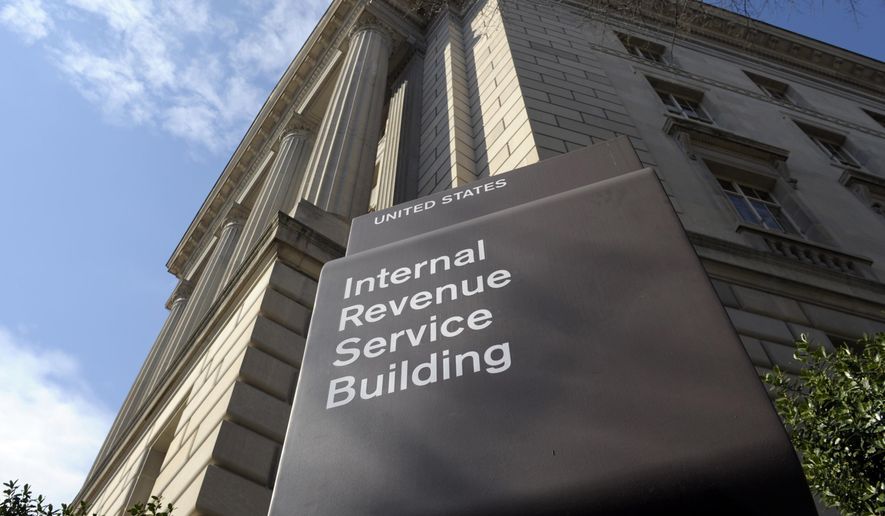The Supreme Court heard arguments Wednesday in a dispute about when — or if — the IRS must give notice when it accesses banking records while probing assets of a delinquent taxpayer.
The justices have been asked to draw a line on the IRS’ reach while the Biden administration aims to beef up the tax agency’s operations with increased staffing from funds appropriated by Congress.
The legal challenge heard Wednesday questions whether people not subject to IRS probes must be given notice when their financial records and dealings are reviewed in another taxpayer’s investigation.
A lawyer for the government told the high court that the IRS needs flexibility to investigate accounts that a delinquent taxpayer may be using in order to collect from that individual.
“Congress wanted the IRS to have some latitude,” said Ephraim McDowell, assistant to the U.S. Solicitor General, arguing Congress drafted its laws pertaining to the IRS to protect privacy, but also to aid the feds in prompt collection.
The legal battle was brought to the high court by two law firms, Abraham & Rose PLC and Jerry R. Abraham PC. They represented Remo Polselli, a delinquent taxpayer, and his wife, Hanna Karcho Polselli.
An IRS agent sought the law firms’ bank records over a multiyear period but did not give the firms notice. The law firms were notified by the bank and moved to halt the summons. The firms argue that the move violates their privacy interests and those of their other clients.
The IRS had summoned the information to find the source of Mr. Polselli’s funds for paying the law firms. The feds sought roughly $2 million from him.
Generally, the IRS is required to give a third-party notice when it seeks records so the individual can protest the summons.
However, there are some exceptions under the Internal Revenue Code. For example, if a judgment is rendered against an individual, the IRS does not have to provide notice to a third party when it seeks records in connection with collecting on the judgment.
Mr. McDowell said in this case, there was a close nexus between the delinquent taxpayer and the firms as well as the spouse, so the IRS did not have to give notice.
He argued the wife and husband were more than relatives, operating LLCs together and that Mr. Polselli was a longtime client of the law firms, so the IRS needed to track his payments to them and analyze what accounts he was using.
But Shay Dvoretzky, who represents the law firms and Ms. Polselli, said the IRS can decide what is helpful to it and stretch that as far as it wants when probing taxpayers.
He warned there’s potential for abuse without notice requirements.
“Nothing stops the IRS from secretly summoning all redacted bank records from anyone who ever received money from a delinquent taxpayer,” he said. “It leads them to issue over broad summonses.”
Although the lower court ruled in favor of the IRS, Chief Justice John G. Roberts Jr. and Justice Clarence Thomas seemed skeptical of the feds.
Justice Roberts questioned why a husband and wife wouldn’t have a financial connection and if the IRS plans to analyze all relatives’ accounts without notice.
Justice Thomas suggested there was no limit to the IRS’ reach, that it could spiral without requiring notice to taxpayers and an opportunity for individuals to protest the review.
“Why can’t you also issue summons to clients of the law firm? To other partners of the law firm? Associates in the law firm who may have had some connection to this client or to this taxpayer?” he asked.
Critics of the IRS have said there needs to be a check on the agency as the feds plan to expand its scope with more manpower.
The Biden administration has allocated to the IRS $80 billion from the $740 billion Inflation Reduction Act. The agency plans to add personnel and resources to close the $600 billion annual deficit between the taxes it collects and the levies that are owed.
The case is Hanna Karcho Polselli, et al. v. Internal Revenue Service. A decision is expected by the end of June.
• Alex Swoyer can be reached at aswoyer@washingtontimes.com.




Please read our comment policy before commenting.